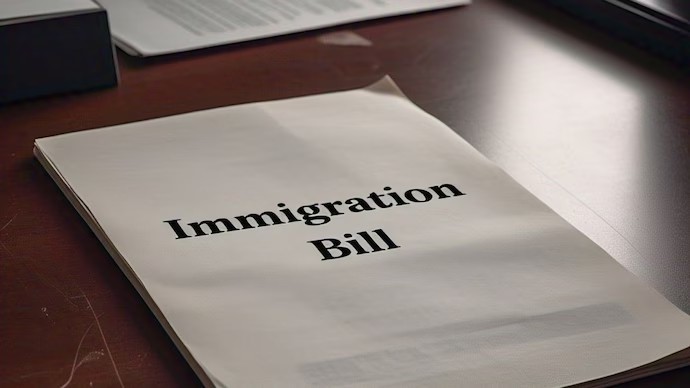Immigration Act 2025: Discretion, Detention, and Dissent Suppressed
Why in the News ?
The Immigration and Foreigners Act, 2025, has sparked nationwide concern for granting unchecked powers to authorities over foreigners, bypassing due process and judicial oversight. Critics argue it undermines constitutional rights and may lead to arbitrary detention and surveillance.
Constitutional Concerns and Civil Liberties
- The Act undermines Articles 14 and 21 of the Constitution, which guarantee equality, liberty, and due process to all persons.
- It violates Article 20 (protection against retrospective punishment and self-incrimination) and Article 22 (safeguards against illegal detention).
- The law criminalises foreignness, where criticism of the government may invite deportation.
- The Act is termed “unconstitutional and un-Indian”, replacing compassion with contempt.
Select Reliefs and the Larger Threat
- Sections 21, 23, 24, 25 offer minor reliefs by allowing compounding of offences.
- However, the overall Act is a draconian overreach, which could target anyone deemed “suspicious”.
- Critics warn it may eventually be used against citizens, posing a serious threat to democracy and liberty.
Alarming Provisions of the Immigration and Foreigners Act, 2025:● The Act grants sweeping powers to the government to detain, deport, or restrict foreigners on vague grounds like “such other grounds as the Central Government may specify.” ● Immigration officers’ decisions are made final and binding, removing the scope for appeals or review. ● Judicial oversight is ousted by design; there are no appellate bodies, ombudsmen, or fair hearing mechanisms. ● Even voluntary departure by foreigners with expired visas is barred unless permitted by the government. ● Section 3(3) allows constant monitoring of foreigners’ movements and biometric details. ● Sections 8(3), 9, 10 compel landlords, doctors, and universities to act as informants. ● Section 14 enables closure of any premises frequented by foreigners without evidence. ● Section 15 lets the state arbitrarily assign nationality, disregarding dual citizenship norms. |




